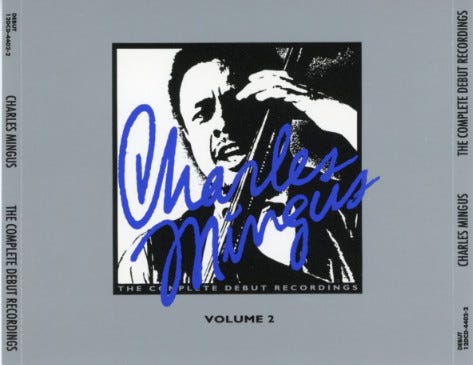Debut Records - Part 2
© Copyright ® Steven Cerra, copyright protected; all rights reserved.
“The new phase of independent labels, in which for the first time the musicians themselves took a major role in ownership and management, seems to have gathered momentum at the turn of the decade (of the short lived 1940s companies, only Mezz Mezzrow's King Jazz and bassist Al Hall's Wax labels came into this category). With the major companies' interest in jazz at a new low after the second A.F.M. strike, first Dave Brubeck had helped start the Fantasy label in 1950, then in 1951 Dizzy Gillespie (Dee Gee) and Lennie Tristano (Jazz Records) had created their own outlets, as did Woody Herman (Mars) around the same time that Debut was founded. Also, despite still being contracted to Columbia, Duke Ellington had in 1950 formed the Mercer label to record small-group tracks which would not tempt the major companies, and he it was too who a decade earlier had set the precedent of an independent publishing company (Tempo Music) for his less commercial compositions.”
Brian Preistley, Mingus: A Critical Biography [1982]
MIND OVER MATTER
Cognizant of the studies going on at Duke University on the subject of the mind, Charles Mingus is making some strides toward expressing these developments through music. He has written two instrumentals, Extrasensory Perception and Precognition and recorded them with a five piece group including Lee Konitz, pianist Phyllis Pinkerton, cellist George Koutzen, drummer Al Levitt and himself on bass. This first record session was primarily an experiment for Charlie, since the cellist, who is with the NBC Symphony, is strictly a classical musician. Since it has always been a contention of Mingus's that music can be written so that it swings, this was an attempt at proving the point. Charles has formed a record company, Debut Records, with Bill Brandt, and they hope to issue these and more and better sides in the future. The company is dedicated, as Mingus says, to the proposition that "jazz can be played just from being read, and also that Charlie Parker was a new beginning in Jazz and not a suspended ending for everyone else to go on copying from."
Bill Coss, Metronome. [This brief profile of Debut was the first to run in the Jazz press and appeared mere months after the label had been launched in 1952.]
As I commented in Part 1, much of the Jazz research that I undertake focuses on searching out aspects of the music about which I was unaware back-in-the-day when I was first becoming familiar with and playing the music.
A case in point is Debut Records which like so many other small record companies had ceased to operate before I developed an awareness of what a rich source these short-lived “boutique” labels were for important recorded Jazz, especially in terms of the work of underrepresented artists.
So when I came across a 12-CD boxed set entitled Charles Mingus - The Complete Debut Recordings [Debut 12DCD-4402], I knew I best acquire it.
Here’s more from the detailed booklet that accompanies the set to serve as Part 2 of this series on Debut.
Keep reading with a 7-day free trial
Subscribe to CerraJazz Substack to keep reading this post and get 7 days of free access to the full post archives.


